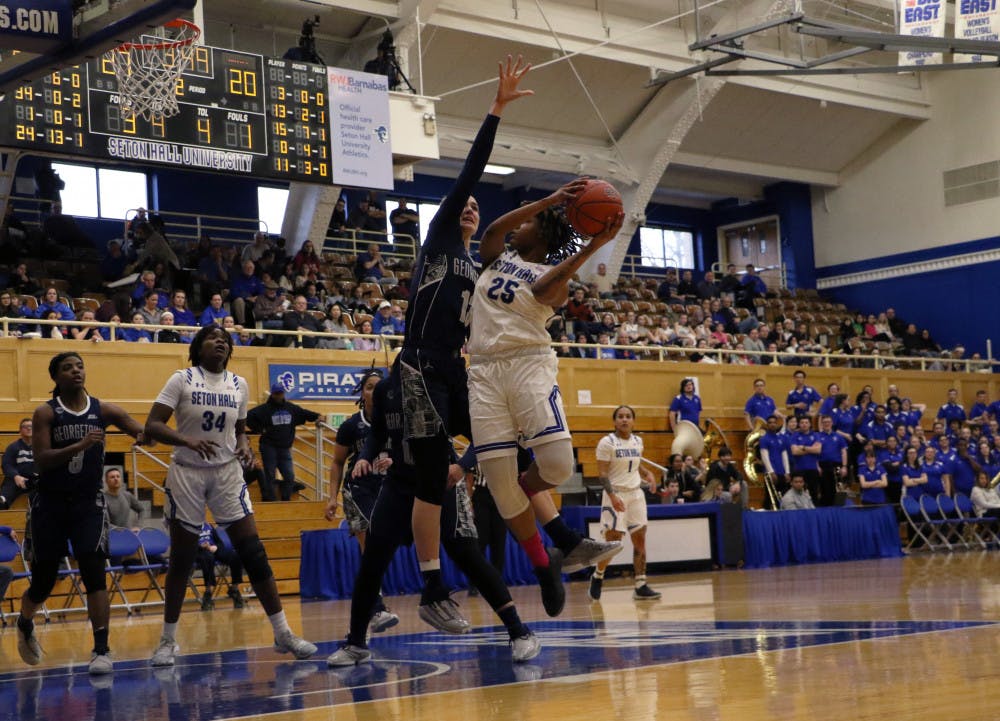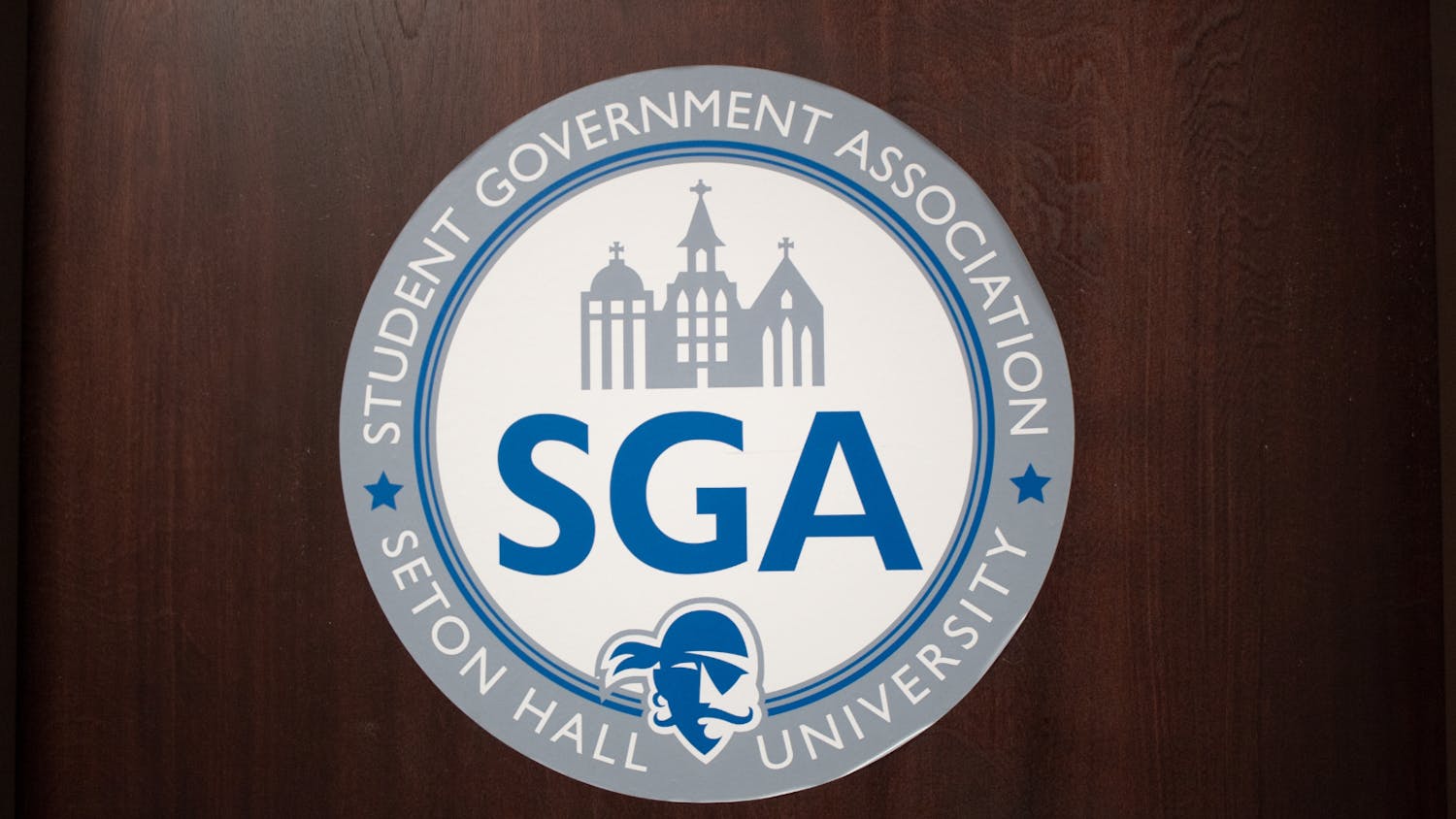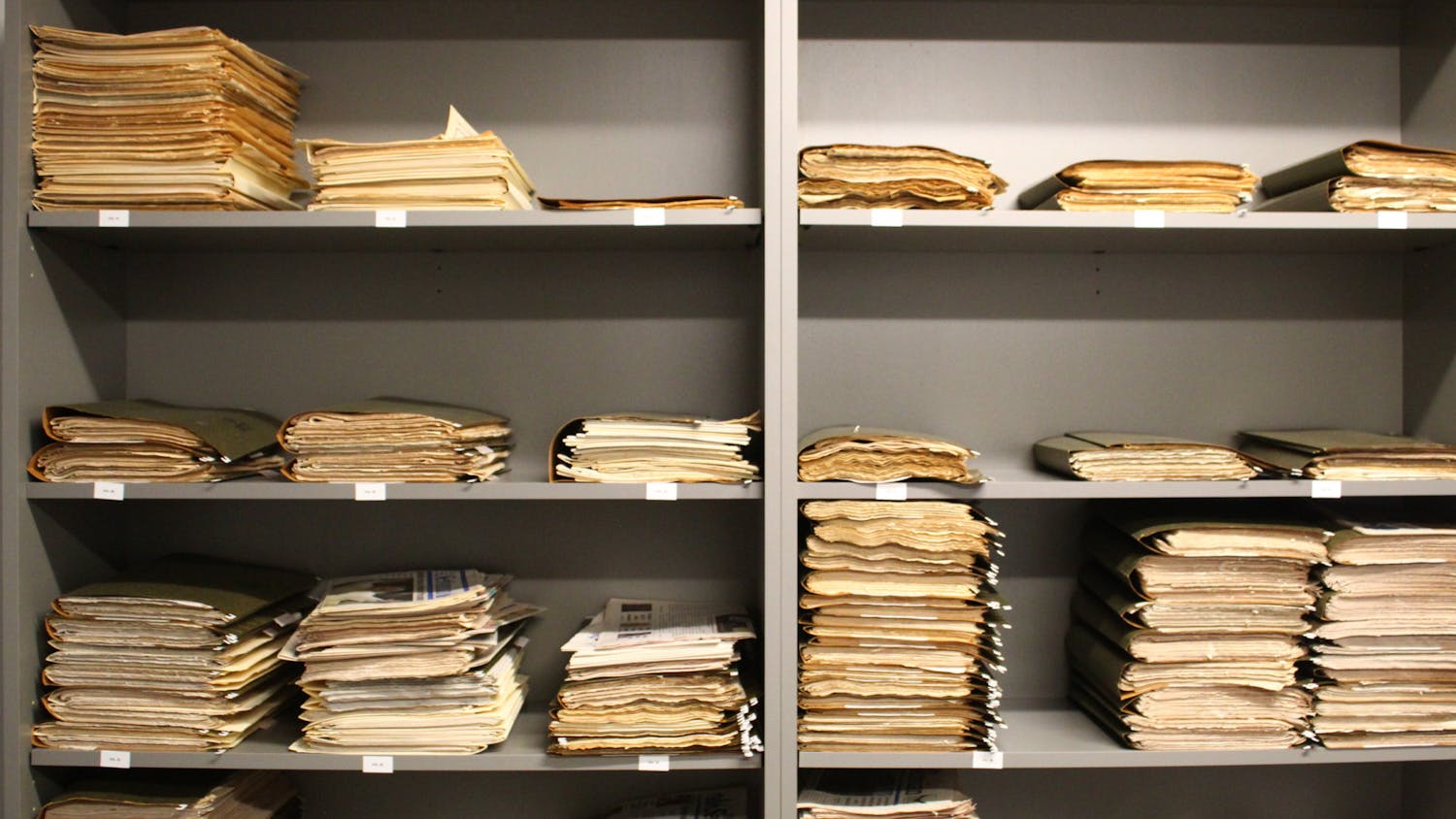[caption id="" align="alignnone" width="278"] Abe Kasbo's (film maker's) Twitter[/caption]
“A Thousand and One Journeys: The Arab Americans” is a documentary set to premiere at the SVA Theatre in New York City this weekend.
The audience will see a portrait of the Arab American experience finding the American Dream, painted through the stories of Arab immigrants.
“It is my hope that viewers will walk away from the film realizing that the foundation of American history includes Arab Americans who have made and continue to make significant contributions to every field that they have gone into,” stated alumnus Abe Kasbo (’94) who helped direct and
produce the film, along with his former SHU sociology professor, Philip Kayal.
Kasbo and Kayal connected on their shared Syrian heritage while Kasbo was a student in Kayal’s class. The seed idea for this film was planted after Kasbo’s essay on the adversities that Syrian immigrants face coming to the United States.
“I think it’s a necessary project, especially in the contemporary social environment,” Kayal said in a press release about the movie.
This idea could not be more relevant as the world faces a refugee crisis, particularly from wartorn Syria, in the Middle East. Refugees are searching for a safe haven after fleeing their country, plagued by a four-year-long Civil War as well as the extremist group Islamic State of Iraq and Syria (ISIS).
ISIS, currently on the U.S. State Department’s list of terrorist organizations, has used extreme violence to achieve an autonomous state in this region, ruled under Shar’ia Law, and to harm their enemies. This includes Western nations, as evidenced by the recent Paris attacks in November that killed hundreds of people, including one American.
This conflict has led around 12 million Syrians to flee their homes and about 4 million of them have become refugees. In 2013, Syria had a population of almost 23 million people.
Ali Ben Saad, a freshman diplomacy major who identifies as a Tunisian American, has some insight into the terror caused by the group.
“The last major attack (in Tunisia) was actually in my neighborhood in Tunisia. My family lives very close to where the beach shooting occurred in Sousse,” he said, referring to the June assault in which 38 people were gunned down in a beach hotel.
While Arab American immigrants depicted in the documentary may have come to the U.S. under less desperate circumstances, Ben Saad noted that Syrian refugees are not so dissimilar.
He said the plight of Syrian refugees is heart breaking, not the least because he has found Syrians to be among the most genuinely kind and welcoming of people.
“I have never met a Syrian or a person from that region who is not hospitable or generous in one way or another,” he said.
“In the Middle East, we hear about how free and great America is. For many of us, America is a dream land,” he added. “I do not want them to come to an America that kills their American dream.”
Ben Saad is the events coordinator for the Muslim Student Association, which is currently working on “Islamic Awareness Week,” scheduled for March.
“Having to leave your home in search for peace is not an easy thing to do and no human should have to be in the position that these refugees are in. My Syrian friends are all watching carefully along with the rest of the Arab world,” he said. “I am in tears every night over what is happening.”
According to an article by the Arab Studies Institute, public expressions of hostility and distrust toward Muslim Americans have become more prominent and normalized in U.S. public discourse lately. Ben Saad agreed.
“There is a negative stigma given to refugees,” he said. “Our response to them is ‘they’re terrorists’ or ‘they threaten our national security’. Ultimately we cannot say this, at the end of the day these people are human beings,” he said.
On Nov. 18, President Barack Obama pledged to take in 10,000 Syrian refugees in 2016 to ease the amount flowing into neighboring countries, like Turkey, Jordan and Lebanon.
The next day, Congress passed legislation, with bi-partisan support, that effectively limits the number of refugees by adding new requirements in the screening process.
Political Science professor Mohammad Hafezian, who specializes in Middle East politics, said on this issue that he thinks the U.S. government should provide logistical and financial support to Syria’s neighboring countries. This could raise the quality of existing refugee camps or provide new ones in these countries.
“This temporary settlement seems a better option for most refugees who plan to return to their homes whenever the conflict is over. The language barriers, cultural differences and antipathy towards refugees in many European countries and recently in the United States as a result of the Paris attacks would make life miserable for most of the Syrian refugees,” Hafezian said.
He sheds some light on the history and perpetuation of the conflict, to which there is no end in sight.
“The Obama Administration has continued to call for the removal of Bashar Assad from power and the establishment of a democracy in the country. But since this demand contradicts the Iranian and Russian interests, the United States has been unable to play a major role in Syria’s political arrangements so far. This has led to the prolongation of the conflict in Syria within the almost past five years,” he said. “No compromise has been made to end the war so far in spite of the recent Vienna meetings (to do so).”
The filmmakers are planning a New Jersey premiere for early 2016. Tickets to the film’s New York City debut, located at 333 W. 23rd, can be purchased for $20 at http://www.brownpapertickets.com/event/2402191. To view the trailer and for more information about this documentary please visit www.arabamericathefilm.com.
Emily Balan can be reached at emily.balan@student.shu.edu.
Abe Kasbo's (film maker's) Twitter[/caption]
“A Thousand and One Journeys: The Arab Americans” is a documentary set to premiere at the SVA Theatre in New York City this weekend.
The audience will see a portrait of the Arab American experience finding the American Dream, painted through the stories of Arab immigrants.
“It is my hope that viewers will walk away from the film realizing that the foundation of American history includes Arab Americans who have made and continue to make significant contributions to every field that they have gone into,” stated alumnus Abe Kasbo (’94) who helped direct and
produce the film, along with his former SHU sociology professor, Philip Kayal.
Kasbo and Kayal connected on their shared Syrian heritage while Kasbo was a student in Kayal’s class. The seed idea for this film was planted after Kasbo’s essay on the adversities that Syrian immigrants face coming to the United States.
“I think it’s a necessary project, especially in the contemporary social environment,” Kayal said in a press release about the movie.
This idea could not be more relevant as the world faces a refugee crisis, particularly from wartorn Syria, in the Middle East. Refugees are searching for a safe haven after fleeing their country, plagued by a four-year-long Civil War as well as the extremist group Islamic State of Iraq and Syria (ISIS).
ISIS, currently on the U.S. State Department’s list of terrorist organizations, has used extreme violence to achieve an autonomous state in this region, ruled under Shar’ia Law, and to harm their enemies. This includes Western nations, as evidenced by the recent Paris attacks in November that killed hundreds of people, including one American.
This conflict has led around 12 million Syrians to flee their homes and about 4 million of them have become refugees. In 2013, Syria had a population of almost 23 million people.
Ali Ben Saad, a freshman diplomacy major who identifies as a Tunisian American, has some insight into the terror caused by the group.
“The last major attack (in Tunisia) was actually in my neighborhood in Tunisia. My family lives very close to where the beach shooting occurred in Sousse,” he said, referring to the June assault in which 38 people were gunned down in a beach hotel.
While Arab American immigrants depicted in the documentary may have come to the U.S. under less desperate circumstances, Ben Saad noted that Syrian refugees are not so dissimilar.
He said the plight of Syrian refugees is heart breaking, not the least because he has found Syrians to be among the most genuinely kind and welcoming of people.
“I have never met a Syrian or a person from that region who is not hospitable or generous in one way or another,” he said.
“In the Middle East, we hear about how free and great America is. For many of us, America is a dream land,” he added. “I do not want them to come to an America that kills their American dream.”
Ben Saad is the events coordinator for the Muslim Student Association, which is currently working on “Islamic Awareness Week,” scheduled for March.
“Having to leave your home in search for peace is not an easy thing to do and no human should have to be in the position that these refugees are in. My Syrian friends are all watching carefully along with the rest of the Arab world,” he said. “I am in tears every night over what is happening.”
According to an article by the Arab Studies Institute, public expressions of hostility and distrust toward Muslim Americans have become more prominent and normalized in U.S. public discourse lately. Ben Saad agreed.
“There is a negative stigma given to refugees,” he said. “Our response to them is ‘they’re terrorists’ or ‘they threaten our national security’. Ultimately we cannot say this, at the end of the day these people are human beings,” he said.
On Nov. 18, President Barack Obama pledged to take in 10,000 Syrian refugees in 2016 to ease the amount flowing into neighboring countries, like Turkey, Jordan and Lebanon.
The next day, Congress passed legislation, with bi-partisan support, that effectively limits the number of refugees by adding new requirements in the screening process.
Political Science professor Mohammad Hafezian, who specializes in Middle East politics, said on this issue that he thinks the U.S. government should provide logistical and financial support to Syria’s neighboring countries. This could raise the quality of existing refugee camps or provide new ones in these countries.
“This temporary settlement seems a better option for most refugees who plan to return to their homes whenever the conflict is over. The language barriers, cultural differences and antipathy towards refugees in many European countries and recently in the United States as a result of the Paris attacks would make life miserable for most of the Syrian refugees,” Hafezian said.
He sheds some light on the history and perpetuation of the conflict, to which there is no end in sight.
“The Obama Administration has continued to call for the removal of Bashar Assad from power and the establishment of a democracy in the country. But since this demand contradicts the Iranian and Russian interests, the United States has been unable to play a major role in Syria’s political arrangements so far. This has led to the prolongation of the conflict in Syria within the almost past five years,” he said. “No compromise has been made to end the war so far in spite of the recent Vienna meetings (to do so).”
The filmmakers are planning a New Jersey premiere for early 2016. Tickets to the film’s New York City debut, located at 333 W. 23rd, can be purchased for $20 at http://www.brownpapertickets.com/event/2402191. To view the trailer and for more information about this documentary please visit www.arabamericathefilm.com.
Emily Balan can be reached at emily.balan@student.shu.edu.

Comments




